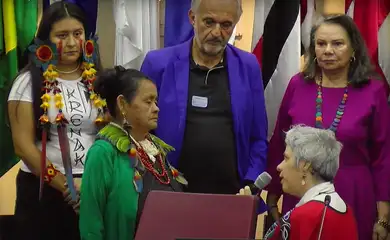Rubens Paiva’s death certificate now states “violent death”

The death certificate of former congressman Rubens Paiva, who was tortured and killed during Brazil’s military dictatorship, has been rectified and it is now recognized that his death was violent and caused by the Brazilian state.

The story of the Paiva family, told in the book written by one of his children, Marcelo Rubens Paiva, provides the plot for the film I’m Still Here, which received three nominations for the 2025 Academy Awards last week.
His document and those of other victims of the dictatorial government that ruled the country from 1964 to 1985 were changed after a resolution by the National Council of Justice obliged the Brazilian state to rectify the records of those who died and disappeared during the regime.
The document given to Rubens Paiva's family states that the death was “unnatural; violent; caused by the Brazilian state in the context of the systematic persecution of the people identified as political dissidents of the dictatorial regime established in 1964.”
In the opinion of Rogério Sottili, director of the Vladimir Herzog Institute, which bears the name of the journalist who was also a victim of the military dictatorship, the alteration of the death certificate is a response to the struggle for justice by the family members of those killed and missing during the Brazilian dictatorship.
“This demonstrates that the women of these relatives are the great heroines—Clarisse Herzog, Eunice Paiva, Ana Dias, and so many other Marias and Clarisses and Eunices, who make this a fundamental struggle for justice, which is the foundation of Brazilian democracy.”
Missing
On January 20, 1971, the former lawmaker was taken from his Rio de Janeiro home by agents of the Brazilian military dictatorship and never returned. Rubens Paiva’s death certificate was not handed over to his family until 1996, 25 years after his disappearance, without the cause of death.





